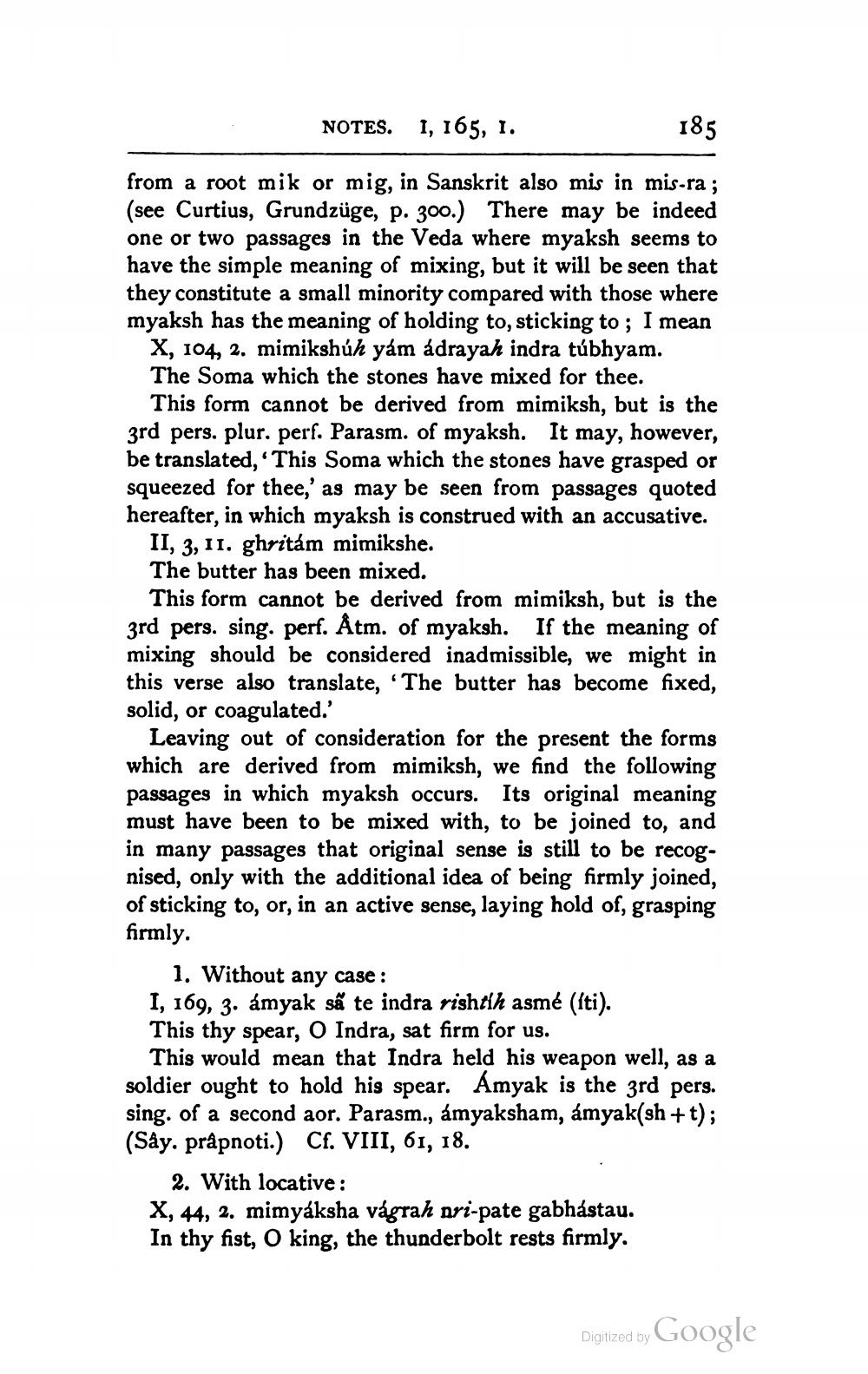________________
NOTES. 1, 165, 1.
185
from a root mik or mig, in Sanskrit also mis in mis-ra; (see Curtius, Grundzüge, p. 300.) There may be indeed one or two passages in the Veda where myaksh seems to have the simple meaning of mixing, but it will be seen that they constitute a small minority compared with those where myaksh has the meaning of holding to, sticking to; I mean X, 104, 2. mimikshúh yám ádrayah indra túbhyam. The Soma which the stones have mixed for thee.
This form cannot be derived from mimiksh, but is the 3rd pers. plur. perf. Parasm. of myaksh. It may, however, be translated, 'This Soma which the stones have grasped or squeezed for thee,' as may be seen from passages quoted hereafter, in which myaksh is construed with an accusative. II, 3, 11. ghritám mimikshe.
The butter has been mixed.
This form cannot be derived from mimiksh, but is the 3rd pers. sing. perf. Âtm. of myaksh. If the meaning of mixing should be considered inadmissible, we might in this verse also translate, 'The butter has become fixed, solid, or coagulated.'
Leaving out of consideration for the present the forms which are derived from mimiksh, we find the following passages in which myaksh occurs. Its original meaning must have been to be mixed with, to be joined to, and in many passages that original sense is still to be recognised, only with the additional idea of being firmly joined, of sticking to, or, in an active sense, laying hold of, grasping firmly.
1. Without any case:
I, 169, 3. ámyak sa te indra rishtih asmé (íti).
This thy spear, O Indra, sat firm for us.
This would mean that Indra held his weapon well, as a soldier ought to hold his spear. Ámyak is the 3rd pers. sing. of a second aor. Parasm., ámyaksham, ámyak(sh+t); (Sây. prâpnoti.) Cf. VIII, 61, 18.
2. With locative:
X, 44, 2. mimyáksha vágrah nri-pate gabhástau. In thy fist, O king, the thunderbolt rests firmly.
Digitized by Google




